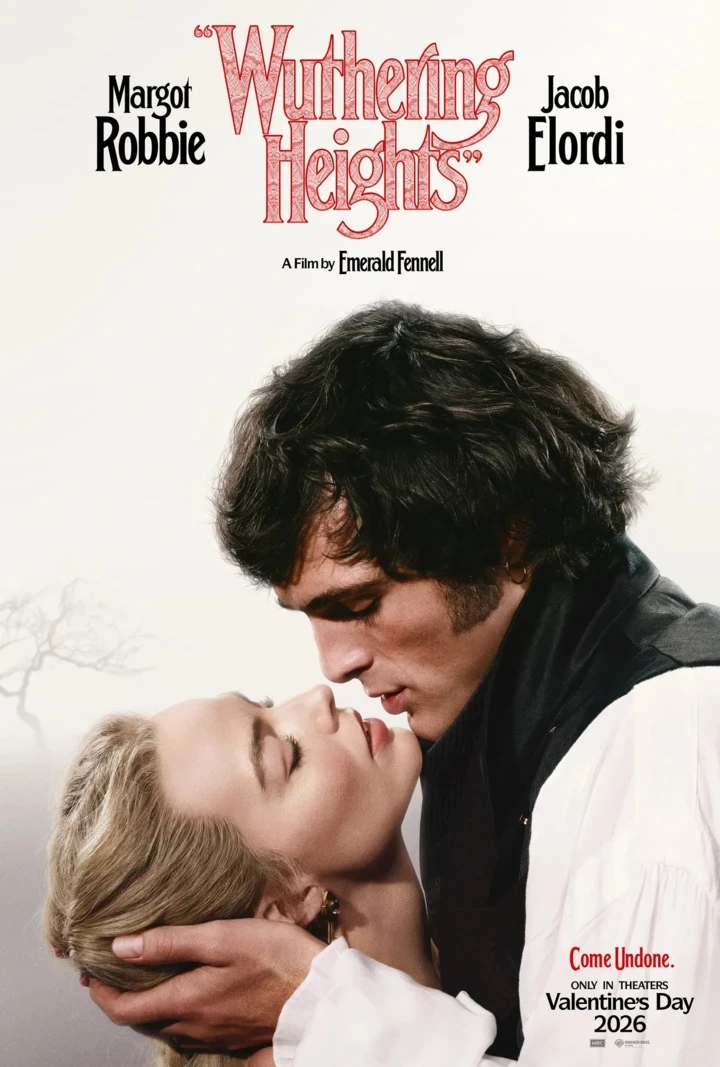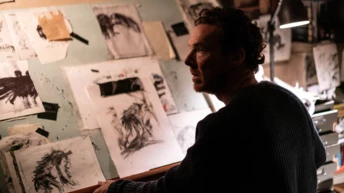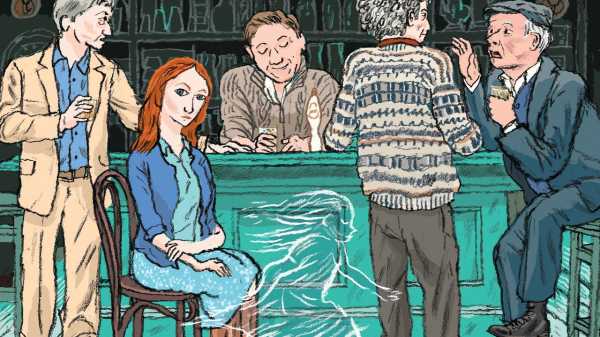
Save this storySave this storySave this storySave this storyYou’re reading the Goings On newsletter, a guide to what we’re watching, listening to, and doing this week. Sign up to receive it in your inbox.
Conor McPherson’s small 1997 masterwork “The Weir” has been one of the most reliable treasures of the Irish Repertory Theatre. First directed by Ciarán O’Reilly in 2013, revived in 2015, and released as a digital performance in 2020, O’Reilly’s exquisite production returns again this summer (through Aug. 31). It’s shrewd counter-programming for these sweltering days: McPherson’s play, set in rural Ireland, shivers with sudden gusts of storm. In an out-of-the-way bar, four local men banter to make the evening pass, welcoming a quiet woman—a “blow-in” from Dublin—by telling her ghost stories. Eerie voices seem to cry in the howling weather outside; the five figures draw close over their bottles and drams, wondering what might stand beyond the door.
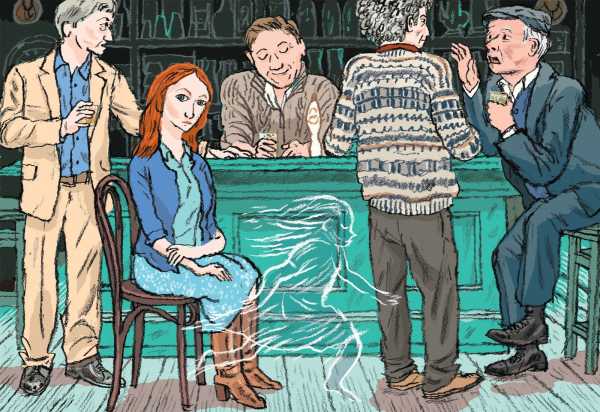
Illustration by Doug Salati
I have adored this production—each time I’ve seen it—for more than a decade. McPherson’s discursive humanism exactly suits both O’Reilly’s light directorial touch and the confident realism of his company of (largely) Irish actors. Some elements are new this time round; for instance, the two younger characters in this production will be played by Sarah Street—the star of Irish Rep’s recent mounting of Beckett’s “Not I”—and Johnny Hopkins. Happily, though, three of the 2013 cast also return: Dan Butler, Sean Gormley, and the brilliant comic beanpole John Keating. These are some of the finest actors in the city, and it’s a relief to find them at the Rep again. Irish Rep is, in fact, very like the bar in McPherson’s drama. In a chaotic and frightening world, it becomes a place to rest, comforted by the presence of increasingly dear, familiar faces.—Helen Shaw

About Town
Classical
You may have heard Chanticleer’s Christmas carols, but have you heard them contemplate the wonders and complexities of nature? As a part of Caramoor’s eightieth-anniversary season, the renowned vocal ensemble puts on a program entitled “Music of a Silent World.” This ode to the Earth will be held in the Spanish Courtyard, boasting Kurt Weill’s Broadway aria “Lost in the Stars”; Reger’s “Hochsommernacht,” or “Midsummer Night”; “I miss you like I miss the trees,” by the Chanticleer collaborator Ayanna Woods; and the song cycle “The Rivers Are Our Brothers,” by Majel Connery, inspired by the Sierra Nevada mountain range. “Winter Wonderland” is nowhere to be found, but we can wait for that.—Jane Bua (Caramoor, Katonah, N.Y.; July 18.)
Television
Though Julian Fellowes’s HBO drama “The Gilded Age” has alluded to significant developments of the eighteen-eighties—cross-country train transport, electricity, Oscar Wilde—it’s primarily occupied by the social-climbing efforts of Bertha (Carrie Coon), the wife of the robber baron George Russell (Morgan Spector), who’s hellbent on dominating Manhattan high society. The first, rather vacuous season hinges in part on whether the Russells’ neighbor—the huffy, old-money Agnes van Rhijn (Christine Baranski)—will ever cross Sixty-first Street to visit. In the latest, third season, though, plotlines involving the Russell marriage and Agnes’s shaky position as the head of the household deliver on the anything-goes unpredictability that the show had initially promised.—Inkoo Kang (Streaming on HBO.)
For more: read Kang’s full dispatch on the series’ fiddle-faddle.
Hip-Hop

Method Man, of Wu-Tang Clan.Photograph by Max Wilder
The lore of the Wu-Tang Clan has grown as rich as the kung-fu flicks on which it is based. What started as a collective of eclectic Staten Island corner boys has spun off into its own franchise, including a scripted Hulu origin story, a video game, a comic-book series, and a one-of-a-kind album which sold for two million dollars. Since its classic 1993 début, “Enter the Wu-Tang (36 Chambers),” no rap crew has been able to claim a greater cultural footprint. The group began its farewell tour, “Wu-Tang Forever: The Final Chamber,” in June, supported by the boisterous duo Run the Jewels; the show mines a deep catalogue, tracing its way back through those early chambers. As the tour draws to a close, so, too, does one of the more epic journeys in hip-hop storytelling.—Sheldon Pearce (Madison Square Garden; July 16.)
For more: read Hua Hsu on the unexpectedly moving story of U-God.
Dance
In 2020, as the Jacob’s Pillow Dance Festival was reeling from pandemic shutdowns, a fire destroyed one of its two indoor theatres, the Doris Duke. This month, that theatre reopens bigger (more than twice as large) and better (kitted out with state-of-the-art audio and camera systems). “Dancing the Algorithm,” an interactive exhibit curated for the gallery by Katherine Helen Fisher, allows visitors to enter the work of Martha Graham; onstage, Andrew Schneider’s Pillow commission “HERE” shows off the theatre’s technological upgrade with a story that extends across eons. Meanwhile, Sarasota Ballet keeps up tradition in the Ted Shawn Theatre with works by Frederick Ashton and a world première by Jessica Lang.—Brian Seibert (Becket, Mass.; July 16-20.)
Movies
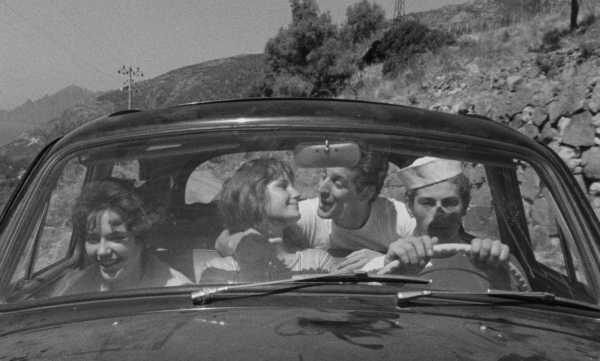
“Adieu Philippine,” set in Corsica.Photograph courtesy Criterion Collection
Though Jacques Rozier made only five features in his half-century-plus career—all of which are now streaming on the Criterion Channel—several of them are among the most original films about summer vacations. In his first feature, “Adieu Philippine,” from 1962, a Parisian TV technician is joined by two women during his last-chance spree in Corsica before his impending military service—likely in the Algerian War. Rozier followed it, in 1971, with “Near Orouët,” a bittersweet comedy about three young women who welcome a nerdy businessman into their beach house and then rely on him for fun, food, and flirtation. Combining freewheeling plots with impulsive performances by mostly nonprofessional actors, Rozier pays quasi-documentary attention to summertime sites and customs while focussing dramatically on the season’s romantic prospects and frustrations.—Richard Brody (Criterion Channel.)
For more: read Brody on Rozier’s inspired improvisations.
Off Off Broadway
In Daniel Holzman’s surreal “Berlindia!,” directed by Noah Latty, nothing’s rooted—at one point, a young woman, Burger (Rosalie Neal), sees Rio de Janeiro floating in the open ocean below her airplane window. Why’s Rio moving? “Rent, probably,” someone says. Burger and her brother Fuck (Arjun Biju) are pursuing their mother (Rita Wolf), who’s left home for the titular Berlindia, as the kids’ dad (Pete Simpson, at his goofy best) visits Holocaust museums, taking strange comfort in the presence of the dead. Holzman, wonderful at shaping odd-sad paradoxes, knows that anything, even a generational horror, can come unfixed; the play’s psychedelic jollity—there’s a long, trippy sequence at a club—founders a bit in the face of such a deep, sad, sobering thought.—Helen Shaw (The Tank; through July 27.)

Bar Tab
Taran Dugal prowls a Lower East Side cocktail den.
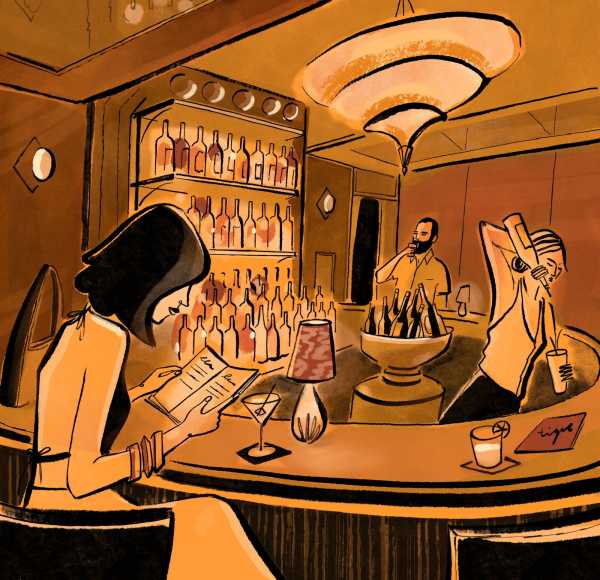
Illustration by Patricia Bolaños
Sex sells, cash is king, and Tigre, a sleek speakeasy on the Lower East Side, seems to have been designed with little else in mind. On a recent humid Saturday, a pair of newcomers waited as a bouncer inspected their credentials. Once inside, they were greeted by an alternate-reality cast of “Men in Black” where Will Smith and Tommy Lee Jones had been replaced by hostesses in matching ebony blazers and gold-buckled loafers. Under the bar’s mirrored ceiling, the two took their seats on a beige leather sofa with patterned velvet cushions. Wood-panelled walls were devoid of decoration, save for a framed collage of Grace Jones and a large photo of a sex shop. (The namesake tiger appears in a print in the bathroom.) While nineteen-eighties Italian boogie streamed from speakers, the duo turned to the faux-gold-leaf menu of cocktails ($21-$30), featuring classics (“Then”), modern concoctions (“Now”), a “martini (by ratio)” section, and several small plates, including a thirty-gram serving of Royal Ossetra caviar ($145). Aware of an acute lightness in their pockets, the newcomers opted for the “perfect” Martini, a sharp and just-bitter-enough number made with a small-batch horseradish gin that vindicated its name, followed by the Foreign Places, a refreshing cognac cocktail with notes of banana and peanut. Pleasantly surprised, they tried their luck with a couple of Wagyu-steak skewers, which yielded the briefest of juicy bites (three per person). Overstimulated and underfed, they called for the bill. Outside, in the sweltering Manhattan evening, stomachs growled. “I’m tipsy,” one of the newcomers muttered. The other checked his phone. “Sounds like my friends are barbecuing,” he said. “What do you think—or should we go back for that caviar?”
A New Yorker Quiz

In honor of the Fiction Issue, test your knowledge of past New Yorker stories.
- Which New Yorker story, published in 1997, inspired an opera and an Academy Award-winning movie? Hint: “If you can’t fix it you’ve got to stand it.”
- Which New Yorker story, published in 2008, is a response to Chinua Achebe’s novel “Things Fall Apart”? Hint: “She enjoyed their fear, the way they backed away from her.”
- Which New Yorker story, published in 2017, has been described as the “literary adjunct to the latest #MeToo moment”? Hint: “She hadn’t seen any cats in the house, and she wondered if he’d made them up.”
P.S. Good stuff on the internet:
- Milky Way all the way
- You don’t have to wish your ex well
- Miranda July’s guide to hot-weather wear
Sourse: newyorker.com



